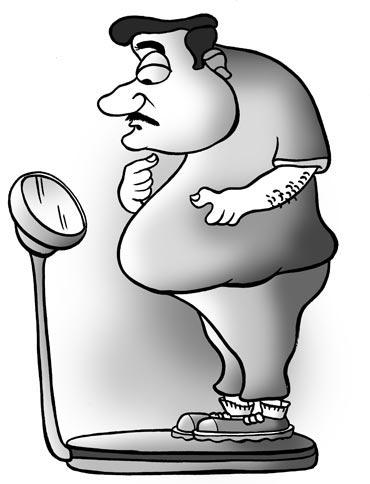
Is it safe? Bariatric surgery is very safe if performed at a proper centre by a competent surgeon, says Atul N C Peters, Director, Metabolic and Bariatric Surgery, Fortis Hospital.
At 43, Harsh Sethi, a businessman, weighs 141 kg and is diabetic. Strict diets and rigorous exercises have not helped. Sethi is considering weight-loss surgery, but is not sure if it’s safe.
Bariatric surgery is a procedure performed on people who suffer from obesity. Weight loss is achieved by reducing the size of the stomach with a gastric band or through removal of a portion of the stomach or by re-secting and re-routing the small intestines to a small stomach pouch. Surgery is advised only for those people who have failed to lose weight after genuine weight loss attempts, who have a Body Mass Index (BMI) of more than 32.5, and if they are suffering from diabetes, high blood pressure and dyslipidemia.
Patients whose diabetes is not under control in spite of supervised medical treatment can undergo this surgery even at a BMI of as low as 27.5.
Some points need to be kept in mind when considering bariatric surgery:
Age limit: It is advisable to restrict this surgery between 18 and 70 years. However, in select cases age is not a bar.
Medical conditions: There is no specific medical condition that prohibits this surgery, except for people with advance heart disease or cancer. Persons suffering from psychological disorders might require counselling before the surgery.
Surgery involves: Certain modification are made in the digestive system where the capacity to eat excessively is corrected. In addition to this, the digestive process is modified, resulting in the release of beneficial hormones which cause further weight loss, keep diabetes in check and provide health benefits.
Change in lifestyle and eating habits: Develop a liking for foods like vegetables and fruits. Learn to eat in moderation and make wise food choices. The meals are small in size and frequent for the initial phase but gradually one can eat a normal diet in moderation.
Benefits: It enhances the sense of well being and social acceptance and prevents life-threatening complications like heart attack, diabetes and sleep apnoea. It also prevents certain cancers like those of the breast, colon and prostate.
Risks involved: Bariatric surgery is very safe if performed at a proper centre by a competent surgeon. In fact, the risk of this surgery is equal to or even lower than in certain routine surgeries like hysterectomy.
Quick Tips
Patients are advised to follow the post discharge advice diligently. They have to maintain a regular physical activity schedule and get back to their normal lifestyle and work routine as soon as possible.
Women should not plan a baby for about a year after undergoing bariatric surgery.
There are no specific pre-surgery considerations. There is no special advice for low calorie diet restriction before the surgery.
Bariatric surgery, like gastric bypass, is fully reversible. But it is only in very rare cases that the surgery has been reversed in patients who experienced excessive diarrhoea and weight loss. In one rare case, it was reversed in a patient who had cancer so that he could take in high protein diet and to allow chemotherapy agents to be absorbed in the right doses.
This surgery is not magical, though it works like magic. So, we should be fully motivated for a regular follow up and dietary counselling.
Illustration: Uttam Ghosh/Rediff.com











